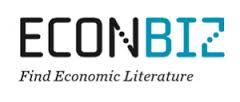Knowledge Management for the New World of Business
DOI:
https://doi.org/10.26703/jct.v7i1.320Keywords:
Knowledge Management, KM, Organisational StrategyAbstract
The emergence of knowledge-intensive society has changed the nature of business competition. Knowledge management is a critical success factor in today’s enterprises. The efficacy of a knowledge management (KM) project depends heavily on a successful coordination of issues such as corporate culture, organizational processes, HRM and information technology. On a global basis, organizations are recognizing the importance of knowledge as a means to gain or sustain competitive advantage. The only thing that is sustainable, for successful businesses, in the New Millennium – is what it knows, how it uses what it knows, and how fast it can know something new. In the past, the dilemma was finding enough information, but now the problem has shifted to identifying and managing the nuggets of mission-critical knowledge amongst the mountains of meaningless noise. Many organizations are primarily knowledge-focused. They obtain data and information and produce either a product or service. In this production process they use their own, and other’s, knowledge and information. Much of the knowledge in an enterprise is grounded in the minds of employees. Since knowledge is the most basic of all competencies, its recognition, creation, application, and management should be a critical success factor for attainment of a competitive advantage. This paper discusses the need of enterprise to transform themselves into knowledge corporations in order to become competitive in the evolving marketplace. It lays emphasis on developing the knowledge management strategy. It also defines tools, techniques and technology needed to create and enhance organizational knowledge and expertise.
Downloads
References
Abell A. and N. Oxbrow, 2001, Competing with Knowledge, Library Association Publishing, London.
Beckman T.J., 1999, The Current State of Knowledge Management, in the Knowledge Management Handbook, ed. J. Liebowitz, CRC Press.
Boisot M.H., 1998, Knowledge Assets: Securing Competitive Advantage in the Information Economy, Oxford University Press.
Day J.D. and J.C. Wendler, 1998, Best Practice and Beyond: Knowledge Strategies, McKinsey Quarterly, 1, 19-25, Winter.
Manasco B., 1996, Leading Firms Develop Knowledge Strategies, Knowledge Inc., October.
Nickols F., 2000, The Knowledge in Knowledge Management, The Knowledge Management Yearbook 2000-2001, ed. J.W. Cortada and J.A. Woods, Butterworth-Heinemann, 12-21.
Scarbrough H. and J. Swan (eds), 1999, Case Studies in Knowledge Management, Institute of Personnel and Development.
K. M. Wiig, 1997, Knowledge Management: Where Did It Come From and Where Will It Go? Expert Systems with Applications, 13, 1, 1-14.

Downloads
Published
Issue
Section
License
Copyright (c) 2012 Neha Jaitly, Raj Kumar

This work is licensed under a Creative Commons Attribution 4.0 International License.










